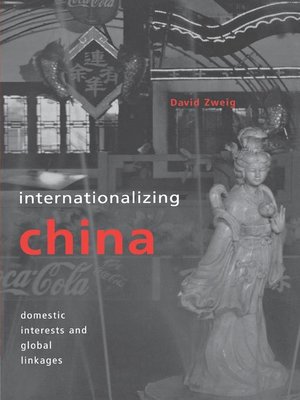Internationalizing China
ebook ∣ Domestic Interests and Global Linkages · Cornell Studies in Political Economy
By David Zweig

Sign up to save your library
With an OverDrive account, you can save your favorite libraries for at-a-glance information about availability. Find out more about OverDrive accounts.
Find this title in Libby, the library reading app by OverDrive.



Search for a digital library with this title
Title found at these libraries:
| Library Name | Distance |
|---|---|
| Loading... |
China began opening to the outside world in 1978. This process was designed to remain under the state's control. But the relative value of goods and services inside and outside China drove cities, enterprises, local governments, and individuals with comparative advantage in international transactions to seek global linkages. These contacts, David Zweig asserts, led to the deregulation of China's mercantilist regime. Through extensive field research, Zweig surveys the extraordinary changes in four sectors of China's domestic political economy: the establishment of development zones, rural joint ventures, the struggle over foreign aid and higher education. He also addresses the crucial question of whether, on balance, internationalization weakens or strengthens state power.







